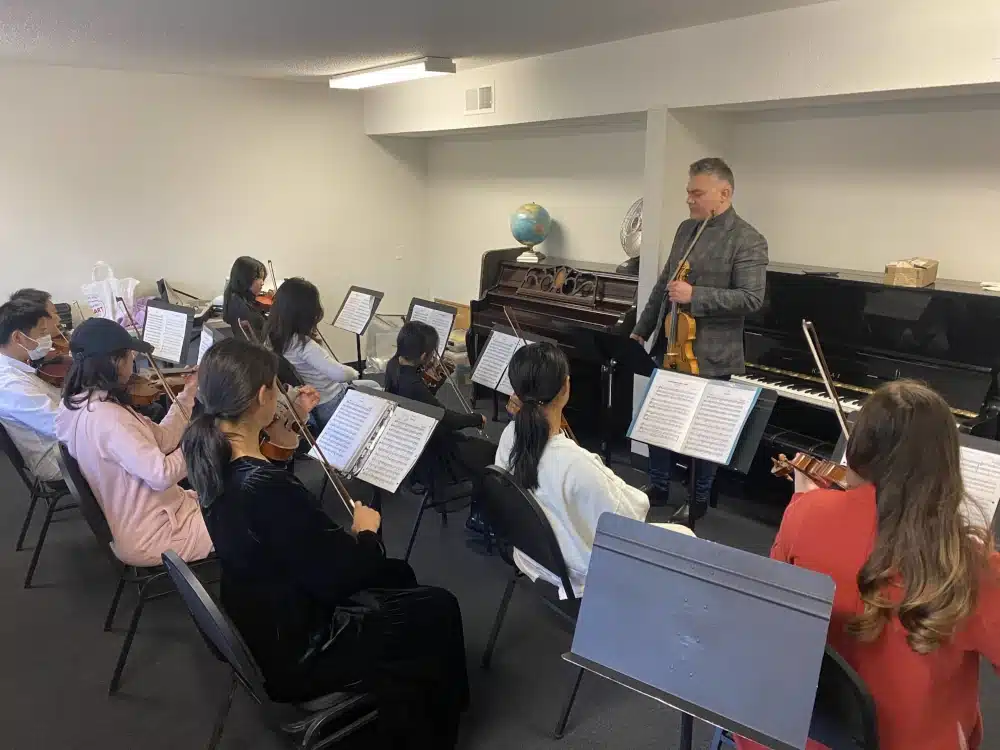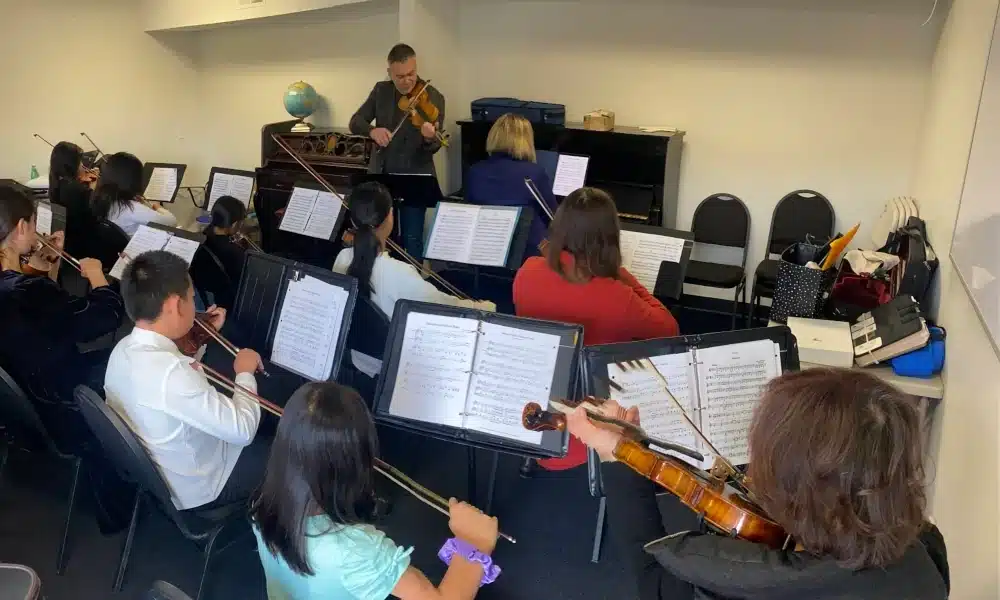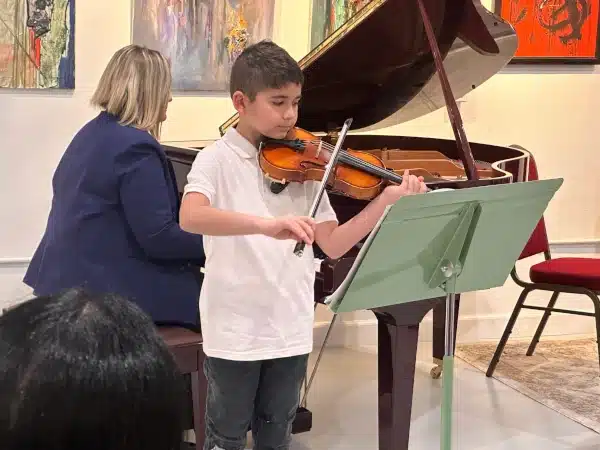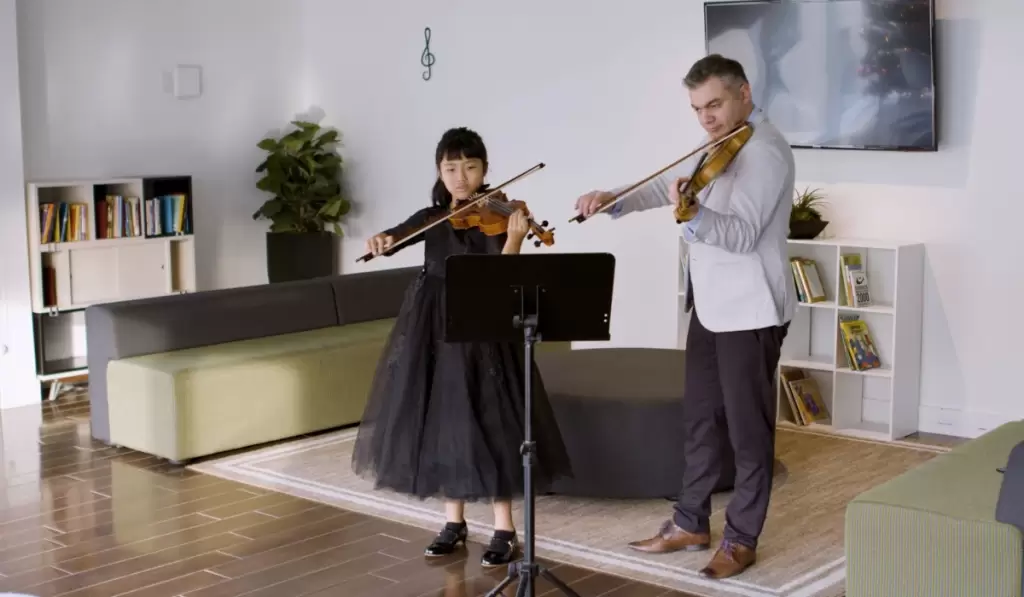Introduction:
In the hustle and bustle of modern life, children face a multitude of stressors that can impact their physical and mental well-being. Amidst this whirlwind, music emerges as a powerful ally, offering a soothing balm for their weary souls. Research has shown that music possesses remarkable therapeutic properties, capable of calming anxious minds, alleviating physical discomfort, and promoting overall relaxation in children. In this article, we delve into the tranquil realm of music therapy and its profound impact on children’s health and well-being.

Stress Reduction:
Music serves as a natural stress reliever for children, offering a sanctuary of tranquility amidst the chaos of daily life. Listening to calming melodies can induce a state of relaxation by slowing down the heart rate, lowering blood pressure, and reducing levels of stress hormones such as cortisol. Whether it’s soft lullabies before bedtime or gentle instrumental music during times of anxiety, incorporating music into a child’s routine can help them unwind and find inner peace.

Anxiety Management:
Children, like adults, experience anxiety in various forms, whether it’s separation anxiety, performance anxiety, or generalized anxiety disorder. Music therapy provides a safe and non-invasive approach to managing anxiety in children. Through techniques such as guided imagery, progressive muscle relaxation, and rhythmic breathing exercises set to soothing music, children can learn to cope with anxious thoughts and emotions in a calming environment. Music acts as a powerful anchor, grounding children in the present moment and providing a sense of comfort and security.

Pain Management:
Music has been shown to have analgesic properties, helping to alleviate pain and discomfort in children undergoing medical procedures or dealing with chronic illnesses. Studies have found that listening to music can distract children from painful stimuli, reduce perceptions of pain intensity, and enhance their tolerance for discomfort. Music therapy interventions, such as live music performances or personalized playlists, can be tailored to meet the individual needs of each child, providing holistic support for their physical and emotional well-being.

Emotional Regulation:
Music serves as a vehicle for emotional expression and regulation, allowing children to navigate the turbulent waters of their inner world with grace and resilience. Through music therapy techniques such as improvisation, songwriting, and lyric analysis, children can explore and process complex emotions in a supportive therapeutic setting. Music provides a safe outlet for self-expression, enabling children to articulate their feelings, build emotional awareness, and develop healthy coping strategies for managing life’s challenges.

Sleep Enhancement:
Quality sleep is essential for children’s growth, development, and overall health. Music can play a significant role in promoting restful sleep by creating a calm and soothing bedtime environment. Soft melodies, gentle rhythms, and repetitive patterns help to lull children into a state of relaxation, preparing them for a restorative night’s sleep. Incorporating music into bedtime routines can signal to the body and mind that it’s time to unwind, facilitating the transition from wakefulness to sleep.
Conclusion:
In conclusion, the healing power of music knows no bounds, offering solace and serenity to children in need. Whether it’s relieving stress, managing anxiety, alleviating pain, regulating emotions, or enhancing sleep, music therapy holds immense potential for promoting children’s health and well-being. As we continue to explore the therapeutic benefits of music, let us embrace its harmonious melodies as a source of comfort, joy, and healing for the young hearts and minds of tomorrow.
